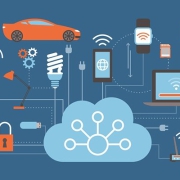The Impact of Car Tracker on Employee Productivity
Car GPS trackers, also known as GPS trackers, have become increasingly popular over the years due to their ability to improve vehicle safety and track vehicle movement. Although car GPS trackers were initially used for personal purposes, they have entered the commercial world and many employers use them to track the movements of their fleets. The use of car GPS trackers has always been a controversial topic, with some people believing that they lead to privacy violations, while others believe that they are an important tool for managing fleets. This article will focus on discussing the impact of car GPS trackers on employee productivity.
The positive impact of car GPS trackers on employee productivity:
Improving accountability: One of the most important ways in which car GPS trackers affect employee productivity is through strengthening accountability. With car GPS trackers, employers can track the location of vehicles, making it easier to determine whether employees are working. This increase in accountability can lead to an increase in productivity, as employees are aware that their actions are being monitored, making them more likely to maintain their work status.
Improved route planning: The car GPS tracker provides real-time traffic updates, allowing employers to communicate with employees about the best route to avoid traffic congestion, construction, or other obstacles. This can improve productivity as employees can reach their destinations faster, leading to an increase in the number of completed tasks.
Reduce unauthorized vehicle use: In some cases, employees may use company vehicles for personal purposes, resulting in a loss of productivity. With car GPS trackers, employers can track the location of vehicles, identify any unauthorized use, and improve productivity.
Improving customer service: Car GPS trackers enable employers to track the movement of vehicles and provide customers with real-time information about their goods or deliveries. This level of transparency can improve customer satisfaction, lead to duplicate business, and increase productivity.
The negative impact of car GPS trackers on employee productivity:
Privacy violation: Using a car GPS tracker can be seen as an invasion of privacy, and employees feel that their every move is being monitored. This may lead to an increase in stress and anxiety, leading to a decrease in productivity.
Enhanced distrust: Using car GPS trackers can breed distrust between employees and employers, as employees feel that their employers do not trust them to fulfill their job responsibilities without continuous monitoring. This may lead to a decrease in morale and productivity.
Increase micro management: The availability of real-time GPS data may lead to an increase in micro management by employers, and employees may feel that they are constantly being monitored.
This may lead to a decrease in productivity, as employees may feel that their every move is being monitored.
In short, the impact of car GPS trackers on employee productivity cannot be ignored. Although using car GPS trackers can increase accountability, improve route planning, reduce unauthorized vehicle use, and improve customer service, they can also lead to negative impacts such as privacy infringement, increased distrust, and increased micro management. Ultimately, it is up to the employer to decide whether the benefits of using a car GPS tracker outweigh the potential negative impacts. However, employers must take measures to ensure that the use of car GPS trackers improves fleet management while respecting employee privacy.








